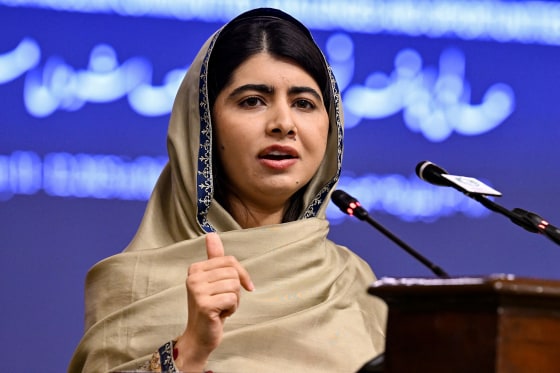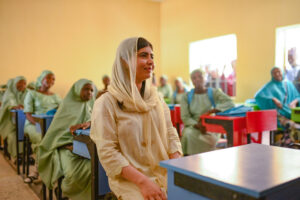Nobel Peace Prize winner Malala Yousafzai has called for stronger action to improve girls’ education in Nigeria.
She made the remarks on Monday at a stakeholders’ dinner in Abuja, during an event themed “Partners in Change: Shaping the Future of Girls’ Education Together.”
Malala, who arrived in Nigeria on Friday with her father, Ziauddin Yousafzai, co-founder of the Malala Fund, said the visit was to advance the fund’s priorities.
These include helping married and pregnant girls return to school, boosting education funding, and using education as a tool to end child marriage.
She explained that the Malala Fund supports local education activists in Nigeria, many of whom are young women, for their role in pushing for gender-friendly education policies.
“I feel so privileged to be among these incredible people leading this work. I met girls and activists here in Nigeria, and I am more determined than ever that change is possible. In our lifetime, we will see every girl in Nigeria enjoy her right to quality education,” she said.
Malala added that the fund is advocating for policies to guarantee 12 years of schooling for every girl.
She stressed that government officials and ministers must ensure proper implementation and funding to achieve real results.
She noted that Nigeria is central to the fund’s mission, as nearly five million adolescent girls of junior secondary school age are still out of school.
Despite this, she praised the resilience of Nigerian girls, saying they know education is the best investment in their future.
The Malala Fund’s Nigeria CEO, Nabila Aguele, also highlighted the impact of its partners. For example, Bridge Connect Africa in Kano works with state officials on gender-responsive budgeting, while Adamawa has introduced policies supported by the fund’s technical assistance. These partners also engage with communities, families, and traditional leaders to support girls’ return to school.
Malala, her father, the fund’s global CEO Lena Alfi, Ms. Aguele, and board members also met with girls and activists supported by the fund to hear about their experiences and needs.
Since 2014, the Malala Fund has invested more than $8 million in Nigerian organisations working to remove barriers that keep girls out of school.




